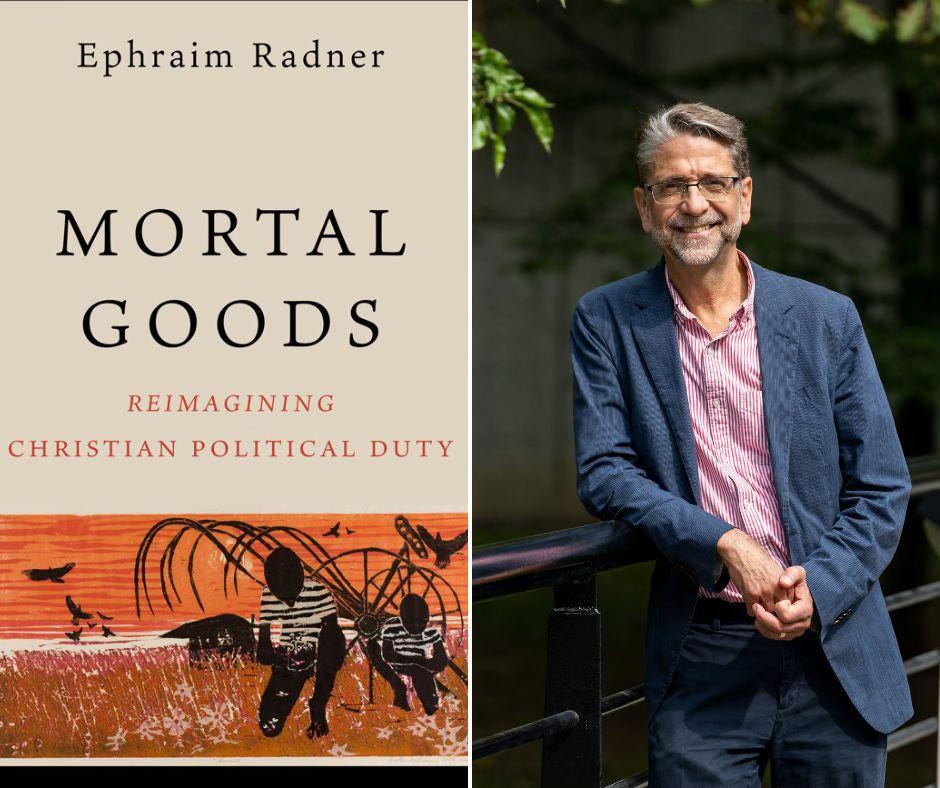“If “politics,” in a general way, refers to the deliberate judgments and decisions ordering our corporate existence, then our Christian calling is to limit our politics to the boundaries of our actual created lives and to the goods that stake out these limits: our births, our parents, our siblings, our families, our growing, our brief persistence in life, our raising of children, our relations, our decline, our deaths. Christian politics is aimed at no more and no less than the tending of these “mortal goods.”
Here is a conversation with the theologian Ephraim Radner.
Ephraim Radner (PhD, Yale University) is professor emeritus of historical theology at Wycliffe College, University of Toronto, in Toronto, Ontario. He is the author or editor of numerous books, including A Profound Ignorance, All Thy Lights Combine: Figural Reading in the Anglican Tradition, Time and the Word, A Time to Keep, A Brutal Unity, The End of the Church, and Leviticus in the Brazos Theological Commentary on the Bible. A former church worker in Burundi and an Anglican priest, he has served parishes in various parts of the United States and has been active in the affairs of the global Anglican Communion.
Show Notes
Summary
In this conversation, Ephraim Radner discusses his life journey, academic interests, and the motivations behind his book 'Mortal Goods.' He reflects on the importance of understanding the Good Samaritan parable in the context of political engagement and the moral imperatives of helping others. Radner shares insights on parenting, cultural influences on young people, and the concept of Christian indifferentism. He emphasizes the significance of mortal goods in our lives and critiques the inflated hopes placed on political systems. Ultimately, he expresses a nuanced hope for the church and the future, grounded in the goodness of God.
Takeaways
Ephraim Radner shares his journey from Berkeley to Denver.
The Good Samaritan parable is often misinterpreted in modern politics.
Radner emphasizes the importance of mortal goods in life.
Cultural values can lead to a sense of insufficiency in young people.
The church has a responsibility to convey the goodness of life.
Political engagement should focus on immediate, local relationships.
Radner critiques the notion of 'betterment' in political discourse.
He argues for a more grounded understanding of Christian vocation.
The pandemic highlighted the need for recalibrating our focus as a church.
Hope for the church lies in its ability to encounter God in everyday life.
Sound Bites
"I wanted to write to them about what I thought was important."
"The Good Samaritan has moved easily into being an image of the imperative."
"Nothing is ever enough. Nothing is ever satisfied."















Share this post